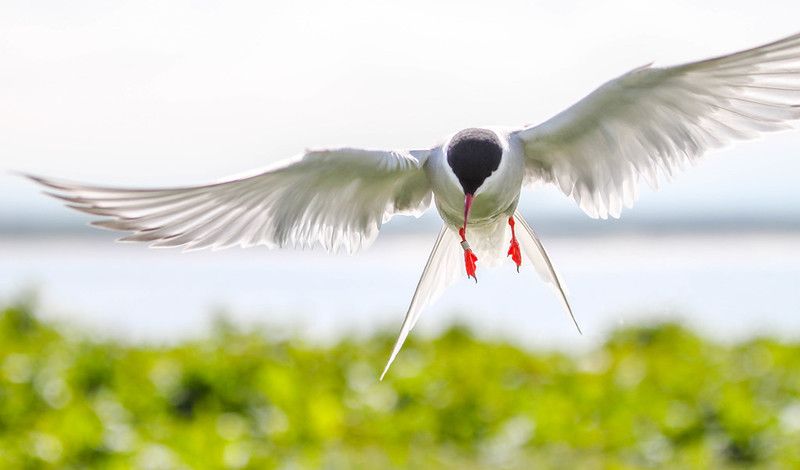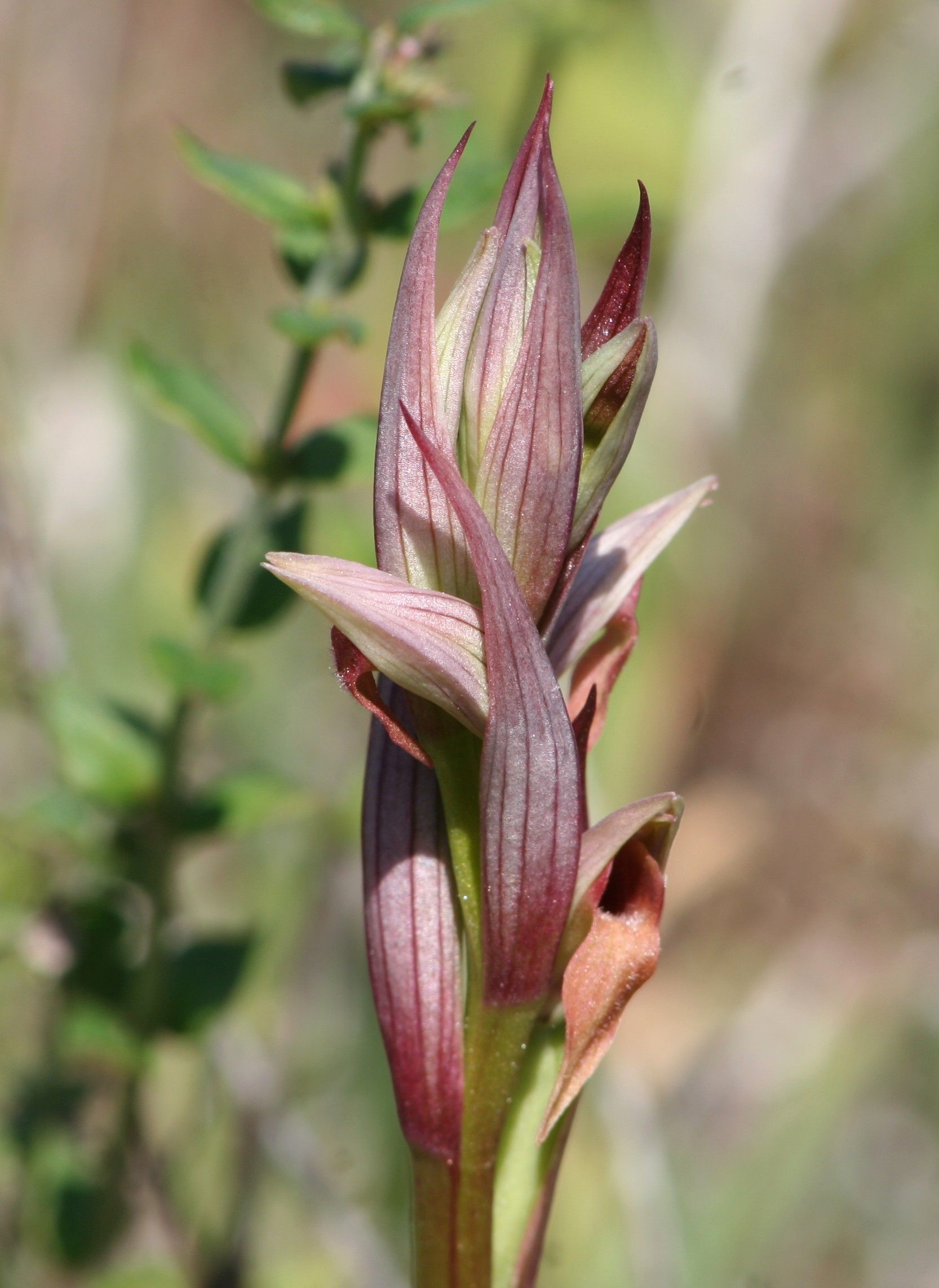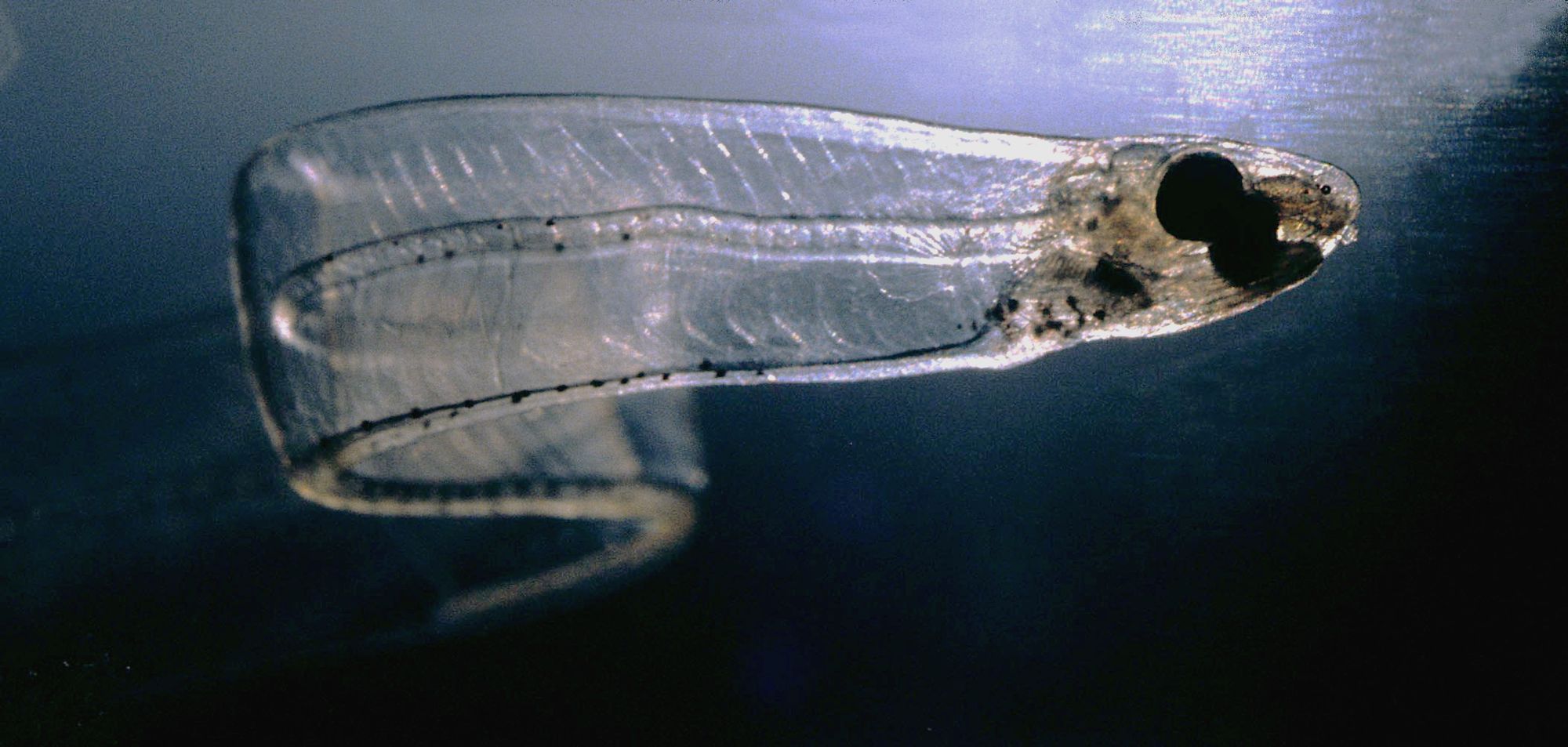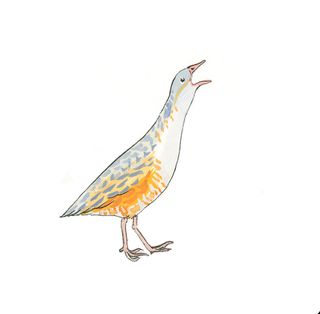
Climate Adaptation & Lost Terns
The latest news on nature and conservation in Britain.
To receive our digest of the week's nature news in your inbox every Friday, sign up here. A monthly donation helps to support our journalism.
National news
Climate | The UK is underprepared for the impacts of climate change, according to a report released by the Committee on Climate Change, the government’s independent advisors, focusing on adaptation. The BBC runs through each section of the report, including a section on nature, stating that beech trees won’t be able to tolerate conditions in southern England by 2050 and that the government must re-wet 100 percent of upland peat moors. The report was widely covered, including in the Financial Times and the Independent. Wales Online focuses on the risk of landslides linked to past mining activities following periods of heavy rain. The government responded here.
Pledges | The government has responded to the Dasgupta Review, a 600-page assessment on the economics of biodiversity that was commissioned by the Treasury in 2019, which concluded that prosperity had come at “a devastating cost to nature”. The government has proposed amending the Environment Bill to ensure that major infrastructure projects provide net-gain for biodiversity. Richard Benwell of WCLink said that, while this was good, “big gaps will remain unless the policy covers all major infrastructure projects.” The story was covered by the Guardian and the BBC. Separately, the G7 concluded in Cornwall, with leaders agreeing a shared ‘Nature Compact’. Ahead of the summit, environment secretary George Eustice wrote of the need to protect nature at home and abroad for the Telegraph.
Transport | Transport for Wales has launched a new Biodiversity Action Plan, with a target of no net loss of biodiversity in its operations by 2024 – and, where possible, a net biodiversity gain. The plan includes five key principles, which are designed to help the organisation protect, enhance and champion wildlife and ecosystems. James Price, Transport for Wales chief executive, said, “We want to be seen as a leader and as an exemplar of sustainable transport.” Projects are already underway, including habitat replacement on a 2-for-1 scale at a rail line construction in Llanwern, near Newport. The news was covered by the Global Railway Review.
In other news:
- Anglian Water has paid a total of £100,000 to two charities after two pollution incidents.
- The Scottish government is funding green projects on islands, reports the Scotsman.
- One thousand dormice have now been released into the wild as part of a UK-wide reintroduction scheme, reports the BBC.
- Marcus Rashford has bought a licence to protect great crested news, reports ENDS.
- Natural England has set out a new approach to offshore wind developments, showing how they can help nature to recover while tackling climate change.
Across the country
Northumberland | Arctic terns have failed to return to their famous nesting site on Inner Farne, with some blaming the National Trust for allowing vegetation on the island to become overgrown during the pandemic. "Not having rangers living out there is a big factor, as a result the habitat management has been neglected,” said David Steel, former head ranger for the site, on the BBC. "The Arctic tern colony has been managed for 50 years and that management has come to a complete standstill." Others have cited the lack of visitors, which would normally deter predators. BirdGuides also covered the story. In happier news, puffins have returned to the Calf of Man for the first time in 34 years, while sea eagles have appeared at Loch Lomond for the first time in over a century.
London | A species of orchid believed to be extinct in the UK has been found on the rooftop of a bank in the City of London. Serapias parviflora, also known as small-flowered tongue orchid, is usually found in the Mediterranean basin. The only previous colony in the UK, located in Cornwall, was destroyed in 2009 as the result of land mismanagement. The 11th floor London colony boasts fifteen Serapias parviflora, which were discovered by the garden’s caretaker Mark Patterson. Both the Guardian and Evening Standard covered the story.

Dorset | Dorset Wildlife Trust have announced the acquisition of 170 hectares of previously agricultural land, which the Trust will regenerate for the benefit of wildlife and ecosystems. The acquisition was aided financially by the local councils, with the primary aim of mitigating the effect of nitrates entering Poole Harbour – a result of both current and historic use of fertilisers on farmland – thus protecting the ecosystem from harmful algal blooms. The plan is that the regenerated land will mitigate the environmental impact of building over 2,000 new homes in the Poole catchment area.
Elsewhere:
- A really rare seahorse has been spotted off the coast of Plymouth, reports the BBC.
- A company is seeking an environmental permit to explore for oil on the Isle of Wight.
- Two West Sussex councils are in negotiations with the Crown Estate to restore a kelp forest to absorb carbon emissions, reports the Telegraph.
- Telford and Wrekin council has sent out wildflower seeds to 145 residents, reports the Shropshire Star.
- Winchester Council has been criticised for mowing a grass verge adorned with wildflowers, reports the Daily Echo. Opinion is divided in Plymouth.
- Residents of Trowse are debating whether to cut back a much-loved walnut tree whose nuts could harm a child with allergies, reports the Eastern Daily Press.
- A 19th century painting will direct the restoration of the grounds of Killerton House in Devon, reports the Guardian.
- Plans for a slurry lagoon on a farm in the Vyrnwy Valley have been opposed by a community council, reports the Shropshire Star.
Reports
Forests | The Forestry Commission has released its annual report on tree-planting statistics. The figures show that planting rates slowed over the past year. This led campaigners to claim the government is not doing enough to combat the climate and ecological crisis, reports the Independent. Dr Darren Moorcraft, CEO of the Woodland Trust, said, “the Government continues to talk a good fight on protecting nature and expanding woodland. To be meaningful these commitments need to be squared with action.” In Scotland, Màiri McAllan, Minister for Environment, Biodiversity and Land Reform, insists there has been “positive progress” in tree-planting activity. Scotland accounts for 80% of all new woodland planting in the UK, and the figures published show Scotland achieved 89% of their 12,000 hectares target for woodland creation.
Scotland | A new biodiversity action plan has been released, focusing on the Scottish highlands, by a coalition of land managers, conservation groups and government agencies. The report contains nine key actions to improve highland nature, including landscape-scale conservation work and deterring wildlife crime. Separately, the Forest Policy Group has released a report on the “pathways to a forested Scotland owned by the people”, commissioned by former MSP Andy Wightman. It looks at how to achieve the vision of the Scottish Greens to restore the nation to 40% forest cover, of which around two-thirds should be natural woodland, via socially just models of land ownership.
Mental health | Researchers from the universities of Exeter and Plymouth have released the final report from their Defra-funded Therapeutic Nature project, looking at how nature-based interventions can help people with mental illness. The report is aimed at government bodies, and has already informed the development of the government’s Green Social Prescribing pilot. The report is extremely long and dense, but a more accessible research briefing is available here.
Science
Regeneration | A study in Plos One finds that ‘passive rewilding’ is highly effective for long-term woodland restoration. In fact, in the two surveyed areas of English woodland, over half the trees were planted not by humans but by jays and thrushes, reports the Guardian. The study followed the regeneration of two separate fields abandoned in 1961 and 1996, which are now covered in 132 and 390 trees per hectare, respectively.
Birds | Two recent studies addressed the illegal killing of birds. In Conservation Evidence, a study on the hunting of waterfowl in England finds that regulations outlawing the use of lead ammunition have had little to no effect. There has been only one prosecution for an offence under the Lead Shot Regulations since they were introduced in 1999, yet the study estimates approximately 70% of total ducks shot are still killed using lead ammunition. Elsewhere, a study in Journal of Rural Studies concludes that persecution continues to negatively impact many birds of prey, despite existing legal protection. This is in part due to pressure from employees within the gamekeeping industry, the study finds.
Water | Scottish rivers could be at risk due to climate change, according to a study in Climate Risk Management. Researchers used flow projections from across the country to identify areas and industries most likely to be affected by droughts between 2020 and 2049. Professor Lindsay Beevers, from Heriot-Watt University, said: “Our analysis shows that droughts could become two to three times more frequent across much of Scotland. Knowing which areas could face water scarcity means that we can plan and adapt.” The findings were covered by the Scotsman and the Herald.
Driftwood
Rewilding | Academics Steve Carver and Ian Convery argue for a more precise definition of rewilding in a feature for ECOS, based upon their work to draw up a set of principles for the IUCN. In other rewilding commentary this week, Natural England chief Tony Juniper argues in the Telegraph that English nature needs to be rougher around the edges – with a new conception of beauty – if humans are to thrive into the future. This led to some pushback from farmer and writer Jamie Blackett, who wrote that his “most intense wildlife experience recently was watching a blackcock lek on a grouse moor” and argued that Juniper’s “hands-off doctrine” would erase such experiences.
Eels | Guardian writer Phoebe Weston has written a feature on one of the surprising side effects of Brexit: glass eel collectors are no longer able to send their catches to Europe, where they are used for aquaculture and restocking rivers. In the UK, fishers are manually helping the eels to navigate the country’s blocked waterways so that they can migrate effectively.

Power | The Sunday Times has released its Green Power List, setting out the UK’s top 20 environmentalists. It also has a separate list of young environmentalists who are making waves across the world. These listicles were accompanied by an article on Carrie Johnson and how her “eco clique took control of No 10.” This is an interesting analysis of who pulls on the strings when it comes to the environment within the Conservative Party. Despite the Carrie-focused headline, the emphasis is really on the Goldsmith brothers, Zac and Ben.
Further reading:
- Robert Macfarlane has written an essay on human navigation – and storytelling – for The New York Review.
- Countryfile has a feature on whether the UK has enough skilled land workers to meet the nature-related challenges ahead.
- Tessa Boase, author of a recent book on RSPB founder Etta Lemon, has written about one of Etta’s living ancestors and what nature means to her.
- A new 12-month campaign, Rewriting Extinction, seeks to save as many species from extinction as possible.
- The Plymouth Herald has an extremely spirited column from one of its crime writers, taking aim at people who write to newspapers to complain about grass verges not being cut enough.
- Natural England has released its action plan for the year ahead.
Happy days
Cottages | There is an extraordinary feature in Wales Online looking at the abandoned houses – some that have been almost entirely consumed by nature – that are nonetheless on the market for hundreds of thousands of pounds. The photos are crazy; though the article also makes an important point about who can afford to live in the Welsh countryside nowadays. If this piques your interest, it’s worth checking out Cal Flyn’s excellent book, Islands of Abandonment.
Inkcap is 100% reader-funded. If you value independent environmental journalism, please consider supporting Inkcap by becoming a paid subscriber.
Subscribe to our newsletter
Members receive our premium weekly digest of nature news from across Britain.
Comments
Sign in or become a Inkcap Journal member to join the conversation.
Just enter your email below to get a log in link.








